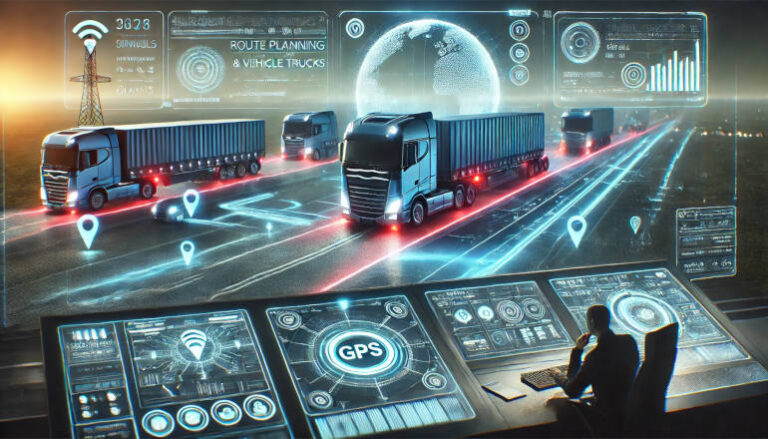The 2025 Fleet Technology Trends Report highlights the evolving role of technology in Australian fleet management amidst economic uncertainty and the growing demand for sustainability. Conducted by ABI Research for Verizon Connect, the report surveyed 514 fleet managers, executives, and mobile-business professionals to uncover key industry insights. Here’s an overview of the findings and their implications for fleet operations in Australia.
The Dominance of GPS Tracking Solutions
GPS tracking remains the cornerstone of fleet technology, with 75% of Australian fleets adopting it in 2024, a 2% increase from the previous year. Key benefits cited include improved fleet management (82%) and cost reductions (67%). Industries such as general freight, construction, and government sectors noted significant productivity gains and streamlined operations.
The technology has proven highly efficient, with 86% of respondents achieving a positive return on investment (ROI) within one year. Notable outcomes include:
- Reduced fuel consumption: 48% of users reported savings between 5%–20%.
- Improved routing efficiency (46%).
- Enhanced customer service (44%).
Adoption of Video Telematics and AI Dashcams
Advanced safety technologies like AI dashcams and video telematics are reshaping fleet safety and operational efficiency. These tools have been instrumental in:
- Enhancing driver safety: 73% of adopters reported improvements.
- Reducing false claims (70%) and accident costs (56%).
- Lowering insurance premiums for 45% of users.
Across industries, businesses using AI video solutions saw reductions in unauthorised vehicle use (up to 75%), tailgating (72%), and driver distractions (56%). These tools serve as vital aids in both safety training and claim verification.
Industry Spotlight: Benefits Across Key Sectors
The report sheds light on how specific industries utilise fleet technologies:
- Construction: With high rates of theft and idling, the construction sector has leveraged GPS and asset tracking to improve equipment utilisation (73%), safety (65%), and productivity (51%).
- General Freight: Companies in this sector emphasised enhanced compliance (53%) and productivity (60%) while achieving significant fuel savings.
- Passenger Transportation: Efficient route planning and stolen vehicle recovery stood out, with 55% reporting gains in routing efficiency and asset recovery.
- Government: Public sector fleets prioritised productivity (69%) and recovered stolen vehicles (62%), showing the impact of GPS on service delivery.
- Services: This sector led in improved customer service (67%) and compliance while addressing labour cost challenges.
Electric Vehicles and the Push for Sustainability
Australia’s fleets are transitioning towards greener solutions, with 51% incorporating battery electric vehicles (BEVs). The report forecasts accelerated adoption in the coming years, spurred by:
- Greater infrastructure for charging.
- Technological advancements in EV range and affordability.
Combining GPS tracking with EVs has further enhanced sustainability by improving fleet visibility (49%), reducing CO2 emissions (35%), and cutting operational costs (47%).
Fuel Tax Credits: Unlocking Savings with Technology
Accurate claims for fuel tax credits remain a priority for Australian businesses. GPS technology has been a game-changer, with 97% of respondents finding it beneficial for compliance. Industries like passenger transportation and general freight achieved significant improvements in accuracy and cost recovery.
Economic Challenges and Technology’s Role
Despite economic uncertainties, fleet technologies have proven resilient in boosting efficiency and cutting costs. The top daily challenges for fleet managers include rising costs (70%), safety concerns (64%), and fuel expenses (61%). Technology has addressed these issues by reducing costs across multiple areas:
- Fuel (21%).
- Labour (18%).
- Accident-related expenses (19%).
Conclusion: A Technology-Driven Future
The 2025 Fleet Technology Trends Report underscores the critical role of advanced technologies in navigating economic challenges and driving fleet sustainability. From AI telematics to the rise of electric vehicles, Australian fleets are increasingly leveraging technology to optimise operations, enhance safety, and meet environmental goals.
For businesses looking to thrive in this dynamic landscape, embracing fleet management solutions is not just an option but a necessity. These tools offer the visibility, efficiency, and savings required to remain competitive and sustainable.






